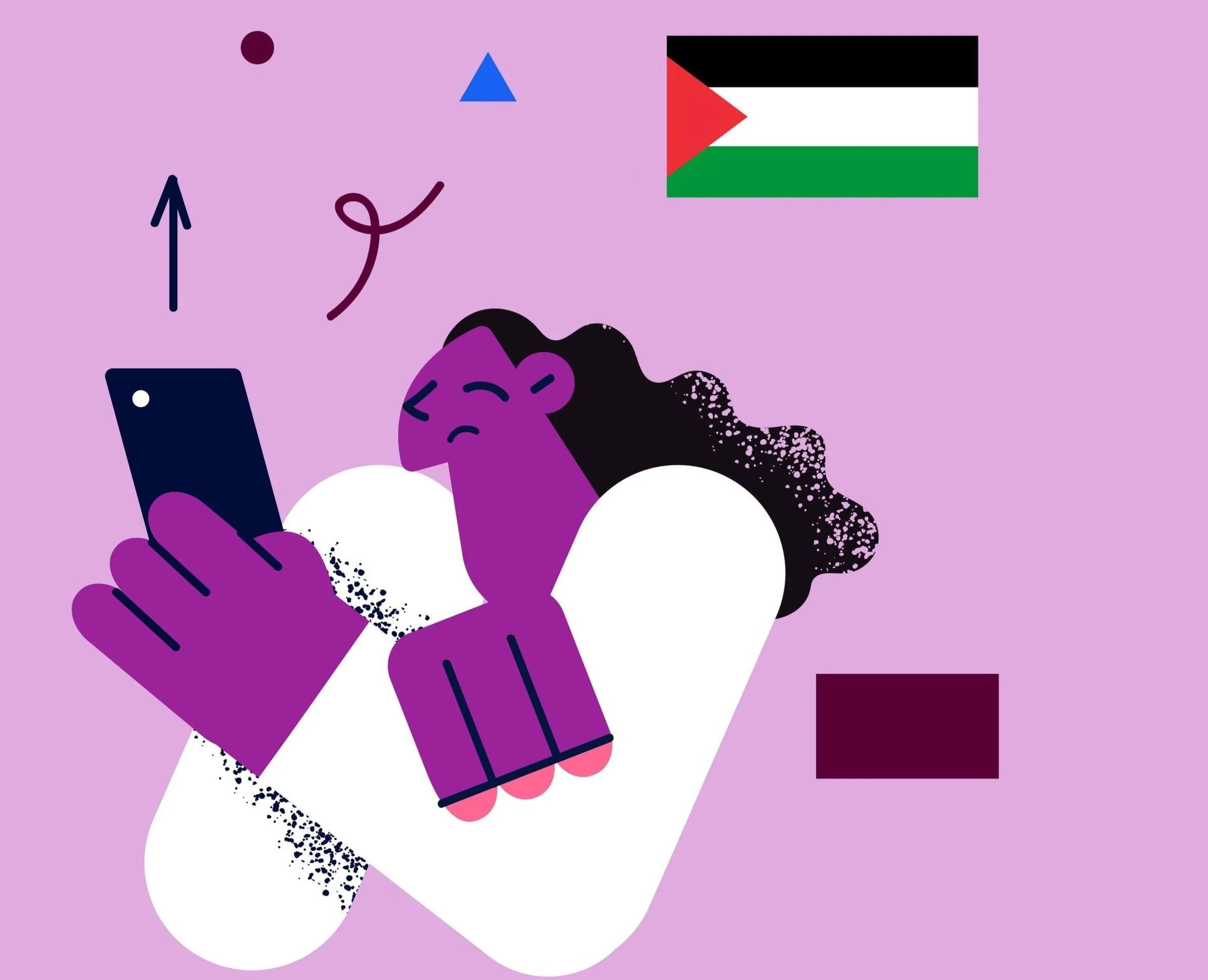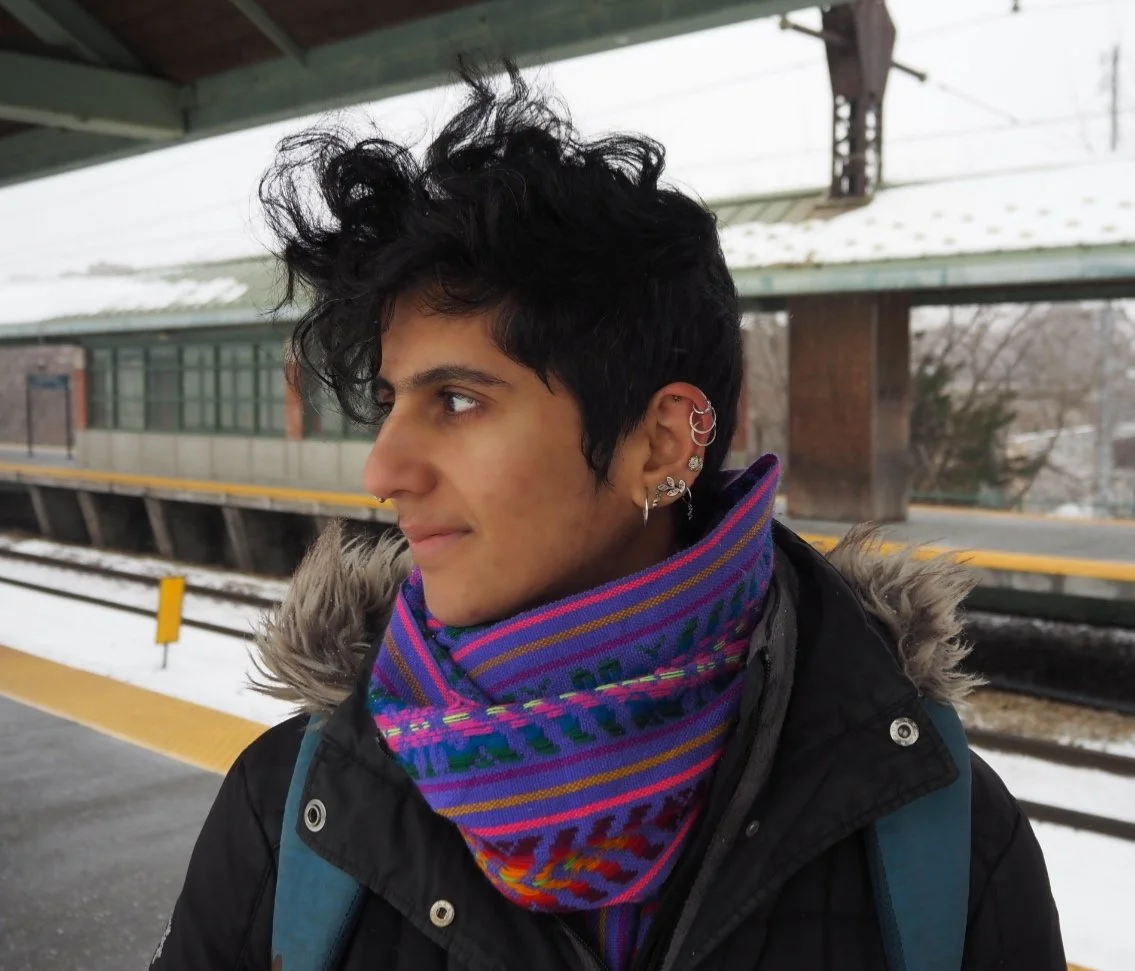POEM OF THE MONTH
MARCH
Decolonization ghazal with a smartphone in my hand
Tanima
You doomscroll every night or become apocalypse-denier, lol.
Count the headlines that unsay genocide, unsay ceasefire, lol.
Hey Siri, is this El Niño or are they bombing the ice caps too?
Siri says: prepare to dance on your own funeral pyre, lol.
True friends send me memes when I’m depressed, sink ships, scheme,
clog the Red Sea with dollars dead to the empire, lol.
Gun aimed at a burning martyr, at Truth ablaze yet intact: this
clarity of the livestream, as if God attempts satire, lol.
They shadowban resistance, though terror sees raised fists, laughter.
They want to be the heroes, of suffering never tire, lol.
WebMD has no diagnoses when symptom is silence, nor cure.
Are bitten tongues complicit? It’s complicated?–enquire, lol.
ChatGPT does homework: can once-colonized turn colonizer?
Algorithms wipe out mosques, victims pray at temples for hire, lol.
When my love had to leave I became a blinking heart on her phone.
Seas and moons have emojis, not what divides us–barbed wire–lol.
Select all images of peace–from mansion, factory, palace, zoo,
army checkpoint; no bot, only human is this kind of liar, lol.
Lonely, at rock bottom, you reach for a cobalt sedative–phone.
Eyes blur, thumbs numb–of the people who make it, wheeze, perspire, lol.
We’ll picnic and take selfies with the living and our dead one day–
feast, fly kites, kiss–at the grave of every last occupier, lol.
Their calm sniper’s sane, our freedom fighters, animals; so even
tiny fly, #BurnDownAllCages, revolt’s in your name, fire–lol.
Straddling Chicago and Delhi, Tanima writes poetry, makes theatre, and sometimes works on a PhD. Tanima’s recent and forthcoming writing can be found in Sky Island Journal, Rogue Agent Journal, The Spotlong Review, poetry.onl, Rust & Moth, and Wildness.

Contributor’s Note:
I have been shuttling between rage and despair over the recent intensification of Israel's genocidal assault on Gaza. For those who are far away, being online has become a mode of such terrible witness.
Lately the words of Maya Abu Al-Hayyat, Noor Hindi, Ghassan Kanafani, Rasha Abdulhadi, Hiba Abu Nada, Fady Joudah, Mosab Abu Toha, Refaat Alareer, Steven Salaita, Bassel al-Araj, Abdaljawad Omar, Rawan Masri, Fathi Nemer, Leila Shomali, Lara Kilani, and so many others have reminded me that resistance for Palestinian liberation also has deep roots, and is ongoing in the present. Their clarity, precision and beauty — attributes the form of the ghazal demands as well — inspired me to craft this poem. The form helped the poem make leaps through time and space (sometimes in tension with the claustrophobia of the online, where I call myself 'firefly'), and tie together other settler-colonial and global capitalist empires, from India to the US.
Zionist brutality has long been a blueprint for fascists elsewhere. Majoritarian violence and liberal humanitarian platitudes both appropriate and distort the language of decolonization. Can poetry betray these causes? Can a ghazal desire other worlds while still being constrained by this one?
— Tanima
Editor’s Note:
From the hundreds of ghazals we combed through this month, many stood out. Tanima's ghazal is our Poem of the Month for its innovative and multifaceted homage to solidarity with Palestine. Tanima's bold experimentation with the form is striking — honoring tradition while fearlessly embracing playful deviations, even challenging its boundaries. "Decolonization ghazal with a smartphone in my hand," transcends conventions, and as it is a ghazal’s job, reaches outward. The personal finds its way to the collective. These dozen couplets offer reflections on war, trivialization of war, desensitization to crises, resistance to oppressive regimes, information overload in the digital age, censorship, the impending climate crisis, the complexities of complicity and silence, love, friendship, longing, surveillance, the illusion of peace, and ultimately hopes for a future beyond occupation and oppression. This ghazal is waving the Palestinian flag and we love that it shows why poetry has been so essential to revolutions throughout history.


